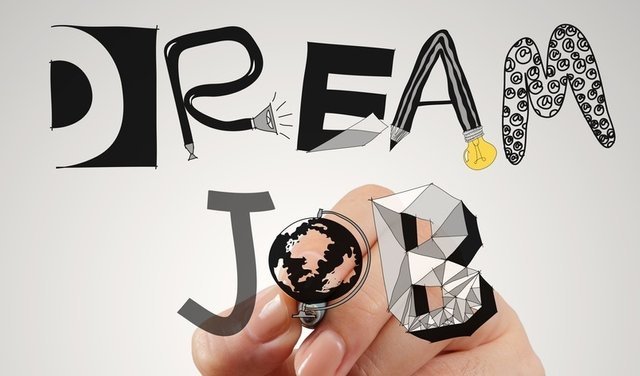How to correctly answer the main questions of the interview
The interview looks like a first date with a girl: you do not know each other yet, the person opposite assesses you as a person, looks at your manners, gestures, and you are not sure whether you will ever see again. This is reasonable, considering that your professional qualities in the interview can not be fully determined, and character, life goals and values can speak about you no less than the track record indicated in the resume. Interviewers have a number of traditional questions, due to which they assess the personal qualities of the interlocutor and his attitude to work. We will tell you how to answer these questions correctly, so that a second call will be made.Call the work of your dream. At first glance, this question may seem innocent, but in fact most recruiters use it to determine if you have career ambitions and a planned way of achieving them. If the vacancy for which you qualify is not a dream job for you, then you do not need to deceive. Firstly, because to deceive is basically bad, especially at job interviews. Secondly, the employer will have an opinion that you just really need work, and you do not have professional aspirations. Therefore, it is better to prepare an answer to this question in advance and be honest. If the work of your dream is related to the activities of the company that you are applying to, then for the interviewer this will be a confirmation of your future efforts for the sake of career growth.

Tell us about your professional successes and failures. This is a very important issue for the employer, as it allows you to assess not only your professional qualities, but also the degree of frankness. To begin with, the recruiter is interested in learning how you talk about your own achievements and failures at work to hear your critical review of your work. Thus, you will show not only the level of your competence, but also the ability to recognize your own mistakes, and most importantly, the ability to correct them in the future. Therefore, it's pointless to talk only about the strengths of your career, keeping silent about the failures. It is important for the employer to hear what lessons you can make out of your own mistakes and how you can solve problems.

You described yourself. Tell me what it means If you thought that a resume is a formality and does not even look at it, then of course you are mistaken. Although for certain there are employers who do not really study the questionnaires of candidates thoroughly. But you can get caught is not so, and therefore you can not lie in a resume. Especially if this lies are easy to open. And it's all right, if you described yourself as a punctual person, although this is not so. This lie, at least, will open already in practice (given that the recruiter has closed his eyes to your hour and a half late for the interview). It's another matter if you ascribe to yourself a non-existent professional quality or some skill. Then the interviewer can ask you a question from the relevant field, and your ignorance will reveal right away. Therefore, when preparing for an interview, be ready to prove in words all the characteristics listed in the summary. If you wrote about yourself that you know how to solve complex problems, then, if necessary, you should give at least one example from practice that proves these words.
What do you see yourself in 5 years? This question is also often asked at interviews and for approximately the same purpose as the dream job. In this case, the interviewer wants to know about your professional goals and how large they are. It's not even important to what extent your plans are correlated with the activities of the company you are settling into. It is much more important that, when formulating big career plans, you show your motivation and readiness for hard work for their achievement. If these goals are implemented within the framework of this organization, then this will be an additional plus for you.

Why are you looking for a new job? If you are not a new graduate of an educational institution, taking up your first job, then there is a great chance that you will be asked this question at an interview. In fact, the recruiter, asking about the reasons for finding a new job, is more interested in why you left the old one. And this question has a very important for the employer's own subtext. It is important for him to hear that you are talking about your past job. If you start to give out an angry tirade, then this will put a negative connotation on you. This may mean that you are a conflict person and not a team player. Therefore, despite the real reasons for your dismissal, try to omit any negative evaluation of the previous work and make your answer more practical: "There I did not see any professional prospects for myself", "Little salary", "I need something more suitable for my career goals. " The main thing is, stay away from personal assessments and do not show your, perhaps, future employer that you are ready to discuss the shortcomings of the previous one.
Is there anything else you would like to tell about yourself? According to one experienced HR specialist, 75% of candidates stumble on this issue. In fact, you can take this issue as a good chance to tell about yourself what you forgot to write on the resume or what the recruiter did not ask you. Simply put, the employer will like to hear from you a well-founded and clear answer, why you are worthy of this post and what benefit is ready to bring in a new place. This is the rare case when you are hiring, when you can be the least modest, because the recruiter in some sense is asking you about it.